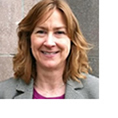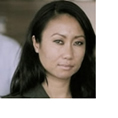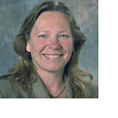


Finance & Facilities Leans In
Barbara Wingerson, Executive Director for Finance & Administration in Finance & Facilities; Claudia Frere, Director of the UW Environmental Stewardship & Sustainability Office; and Ruth Johnston, Associate Vice President and Special Assistant to the Provost, share their thoughts on Sheryl Sandberg’s Lean In and women in leadership at the UW.
Three of Sandberg’s core concepts resonated with us: sit at the table, make your partner a true partner, and don’t leave before you leave. We talked about the need to “show up” and how actively looking for ways to invite yourself to the table is key to success.
Our experience has been that colleagues and those in leadership don’t necessarily want to prevent access—for instance, to women or people of color—but don’t always think of all the right people to include. That’s why the individual can’t always rely on the institution and must take personal responsibility for change. As Sandberg writes, "The shift to a more equal world will happen person by person." In our view, by showing initiative, asking to be at the table, or finding ways to be visible and credible, you can become a player at the UW.
For us, having had strong female leaders has made a difference. V'Ella Warren, as Senior Vice President, has always prioritized employee growth and development; it’s a key principle in her leadership. Finance & Facilities (F2) leadership has been very consistent, allowing the senior leaders to broaden their scopes of responsibility and invite others to get involved and develop new skills.
Ruth is one of four women on the eight-member senior team, along with V’Ella, Ann Anderson, and Sue Camber. "The four of us have worked together for over 20 years," Ruth explains, "and I believe that we’ve achieved great synergy, effective communication, strong collaboration, and trusting relationships. My hope would be that we’ve successively modeled robust yet collaborative leadership so that others in F2—women and men alike—are positively affected by our approach and strive to follow it."
Barbara and Ruth talked about the strong partnerships with their husbands, especially as it relates to child rearing and getting tasks done. Getting kids to sports, music, and other activities, and doing household tasks, including maintenance and cooking, would be almost impossible without a strong partnership, given the high demands of their jobs.
However, the institution plays a role, too. "Flexibility in how the work gets done is key," Barbara believes. "Having opportunities to telework, or having alternate work schedules when needed, adds to the ability to be effective on the job and facilitates work-life balance. This sort of flexibility also allows us as an organization to retain key people."
As to Sandberg’s point that some women, based on plans to have a child in the future, make decisions that limit their careers—or "leave before they leave"—all three F2 leaders agree that it’s challenging but essential to sustain momentum. "Energy and enthusiasm are the keys to finding opportunities and getting recognized," notes Claudia. "It’s important for women to maintain the fire within even when they are planning for the next move, whether it be for family or career choices."
In all, our experience has been that the UW offers us the ability to lean in. We believe all employees have a chance to impact their jobs and the UW, as well as attain job satisfaction, if they’re willing to put themselves out there—take initiative, seek the opportunities for growth, and find that place at the table.


